Ethics panel finds probable cause Alabama governor broke law
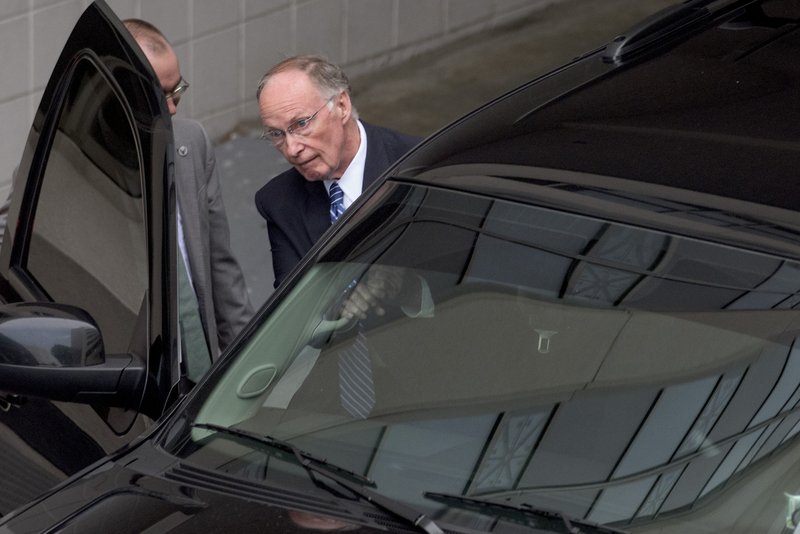
The Latest on the Ethics Commission hearing on Gov. Robert Bentley (all times local): 7:10 p.m. A state ethics panel has ruled that there is probable cause that Alabama Gov. Robert Bentley violated state ethics and campaign finance law in a sex-tinged scandal that has engulfed him for more than a year. The Alabama Ethics Commission voted Wednesday to refer the matter to the district attorney’s office for possible prosecution. The 74-year-old governor has struggled to shake off a scandal after recordings surfaced last year of him making suggestive remarks to a female aide before his divorce. Bentley has admitted making personal mistakes but denied doing anything illegal or that would merit his removal from office. State Auditor Jim Zeigler filed an ethics complaint against Bentley accusing him of using state resources to pursue a relationship with the aide. The commission found probable cause that Bentley misused state resources and improperly accepting a campaign contribution and loan outside allowed fundraising windows. ___ 8:18 a.m. The Alabama Ethics Commission could weigh in soon on whether there’s reason to believe Gov. Robert Bentley broke state law in a scandal that has engulfed him for a year. The commission is expected to go behind closed doors Wednesday to consider the matter. The 74-year-old governor admitted personal mistakes after recorded phone calls surfaced of him making sexually charged remarks to a female aide. However, he maintains he did nothing illegal. State Auditor Jim Zeigler filed an ethics complaint against Bentley accusing him of using state resources to pursue a relationship with the aide. The commission functions like a grand jury and will decide if there is probable cause that Bentley broke the ethics law. The commission could vote to refer the matter for possible prosecution. Republished with permission of The Associated Press.
Alabama counties embroiled in ‘dismissal-for-sale’ pretrial diversion scheme

According to an article published in The New York Times, the pretrial diversion programs in Alabama counties are being used as a “dismissal-for-sale” scheme for those with money and connections. Typically used for first-time offenders, pretrial diversions give nonviolent, low-level offenders a chance to escape a scrape with the law by paying a fee instead of getting a permanent mark on their criminal record. Proponents say such programs also allow prosecutors to focus on more pressing cases instead of letting the system getting bogged down with small-time crooks, but the Times has found many counties’ programs are rife with abuse. District Attorney Douglas A. Valeska, who serves Houston and Henry counties, has brought in more $1 million for his office over the past 5 years by using the program, including $2,400 for a case involving his son and a friend. Back in 2011, a friend of Douglas Valeska II fired a gun into the air at a party and then began spraying Mace, eventually fleeing into a getaway car driven by the Valeska. When the pair were pulled over by police, the friend was When the pair were pulled over by police, the friend was arrested, but was granted a pretrial diversion that involved a fine and probation. That same year, the District Attorney’s office transferred $2,300 to the Henry County Sheriff’s office to buy scuba gear for the dive unit headed up by the arresting officer in the case involving Valeska’s son.In another case, an Arby’s cashier used a customer’s debit card to buy $14 worth of food was required to pay $2,000 to get a pretrial diversion, five times the maximum rate of wealthier San Bernardino County, Calif. In another case, an Arby’s cashier used a customer’s debit card to buy $14 worth of food was required to pay $2,000 to get a pretrial diversion, five times the maximum rate of wealthier San Bernardino County, Calif. Of that money, $850 went to the District Attorney’s office, $100 to the county clerk and $100 to the police. A pair of charities founded by Valeska received $250 a piece. The Times also found that the ability to get diversion in Alabama is closely related to an individual’s ability to pay up, which runs counter national guidelines on diversion programs. “Out of 48 diversions, 10 were revoked for failure to pay,” author Shaila Dewan writes. “In Mr. Valeska’s jurisdiction, the poverty rate for blacks is almost triple that of whites, putting them at a significant disadvantage.” Valeska seems to play politics with diversions as well. In one case, a man accused of stealing money and equipment from his employer was granted a diversion, only to have it revoked when hired a lawyer, Adam Parker, who had cooperated in an ethics investigation of Valeska. “Mr. Valeska used his own misguided hatred of my law partner against our client and arbitrarily and without cause stated he was killing the deal,” Parker’s partner said at the time. Still, there are signs of change in Dothan, the Times reports. After an Alabama Ethics Commission found Valeska had committed two minor violations and fined him $2,000, the longtime District Attorney did not file for re-election. His successor, Pat Jones, was elected without opposition and will take over in January. Those close to Jones, who has worked with a local prison re-entry group, say he will likely have a more merciful approach to the job, though there is a possibility he will retain Valeska to prosecute high-profile cases.
Bah Humbug! Ethics rulings hamstring Alabama charities, just in time for Christmas

It is Christmastime, and since Alabama is one of the most charitable states in the nation, I would expect that many of us are in the giving mood and plan to help many worthy causes across our great state. Unfortunately, it appears that some recent rulings by the Alabama Ethics Commission are going to make it more difficult for charities across the state to raise the funds that they need to serve our communities. Many charities in Alabama are concerned that an unintended consequence of recent Commission interpretations of the ethics law is that it could restrict the ability of public officials and employees and their family members to be involved in fundraising for charities and other organizations that they support, including public schools and universities. You may not be aware, but there are over 300,000 public officials and employees at the state and local level who are covered by Alabama’s ethics law. Many of these individuals are leaders in their communities, who are appointed to positions of public responsibility such as school boards and water boards. Not surprisingly, these same individuals are often also involved in supporting a number of worthy causes and charities by helping with their fundraising and serving on their boards. The problem is, over the past year or so, in an effort to implement what they seem to believe the law requires, the Ethics Commission has issued guidance that places restrictions on the ability of public officials and employees to help charities by seeking donations from various individuals, businesses, and organizations. While their intentions are no doubt good, the broad language of these rulings has caused major issues for charities across the state. This is because a number of those charities rely on individuals, who happen to be part-time members of public boards who are covered by these ethics laws. As a result, charities are asking anyone involved in a public body not to fundraise for them no matter how much they have done so in the past. I do not expect that anyone was thinking about these situations when they amended the ethics laws back in 2010, but it appears that this is another one of those unintended consequences of a well-intentioned law. To make matters worse, under the Commission’s interpretations of these laws, the restrictions on charity fundraising also seem to apply to the family members of these 300,000 public servants who are raising money for a charity. This means that these rulings affect the ability of many more Alabamians. There are probably close to one million folks who help raise money for the charities that they support. Hopefully, the Commission will clear up this confusion. However, if they do not, I expect that the outcry will be so great that the Legislature will take action. Remember that this is not the first time we have had problems with broad interpretations of the ethics laws at Christmastime. Back in December 2011, you may recall, the Ethics Commission issued rulings that raised a lot of questions and concerns about the ability of public school teachers to accept Christmas gifts from students under these same ethics laws. The concerns arose then because of some of the changes to the law that had gone into effect earlier in 2011. The Commission’s rulings in 2011 did not, in the end, clear things up very much for students and their teachers in time for Christmas. However, in the following legislative session in 2012, the Legislature amended the ethics law to make it easier for students to give Christmas gifts to public school teachers and coaches. The legislative fix was needed to address an unintended consequence of the law. I think we are all hoping this current problem for charitable fundraising is resolved by the Ethics Commission in time for Christmas. We do not need our charities and other worthy causes to suffer an unintended consequence of a well-intentioned law. See you next week. ___ Steve Flowers is Alabama’s leading political columnist. His weekly column appears in over 60 Alabama newspapers. He served 16 years in the state legislature. Steve may be reached at www.steveflowers.us.
Ethics commission to weigh if PSC member can lease to solar company

A state ethics panel will reconsider whether a member of the Public Service Commission can lease land to a solar energy company that in turn would sell electricity back to a power company regulated by the PSC. Public Service Commissioner Chip Beeker asked for the opinion regarding the potential lease on his pasture land for the solar generation facility. The Alabama Ethics Commission deadlocked on the matter this month. The ethics panel listed the opinion on its Thursday agenda. However, a lawyer representing Beeker said he was surprised the request was being reconsidered this week. Attorney James Anderson says he will ask the commission to wait until its regularly scheduled October meeting. The PSC does not regulate the solar company. But it regulates Alabama Power, which might buy the electricity. Republished with permission of The Associated Press.
Federal lawsuit challenges Alabama requirement for ethics training before lobbying public officials

Can the state of Alabama require an ethics law class before exercising First Amendment rights? According to the Alabama Ethics Commission, it can and does. Virginia-based public interest law firm Institute for Justice filed a new federal lawsuit on behalf of Maggie Ellinger-Locke and the Marijuana Policy Project (MPP). At issue is an Alabama law requiring all registered lobbyists to attend an ethics class offered only four times a year and in only one place – Montgomery. Founded in 1995, MPP is the largest organization in the U.S. focused on ending the prohibition on marijuana. According to the group’s website: “MPP’s mission is to change federal law to allow states to determine their own marijuana policies without federal interference, as well as to regulate marijuana like alcohol in all 50 states, D.C., and the five territories.” Part of Ellinger-Locke’s job, says IJ Senior Attorney Paul Sherman in a recent op-ed, is to talk with legislators and government officials in nearly a dozen states on ways to make marijuana policy “more just, sensible and humane.” “Unfortunately for her,” Sherman writes, “all lobbyists in Alabama are required to take an in-person ethics class.” The problem is, Ellinger-Locke lives in Arlington, Virginia and works at the MPP headquarters in Washington DC. Sherman also points out that mayors, city and county council members, as well as members of local boards of education, are each required to take similar training – a program that could easily be offered online. Nevertheless, Sherman adds that such a requirement is not only bad public policy but also unconstitutional. That is why IJ filed a First Amendment challenge in federal court. “If a person wants to talk to an elected official about a matter of public policy,” Sherman concludes, “they shouldn’t have to take a government-mandated class. Instead, the only thing they should need is an opinion.” Sherman and MPP Director of State Policies Karen O’Keefe will be available to discuss the case and answer questions on the case through IJ’s conference line – 800-326-6981 (Password: 415681) – beginning 9:30 a.m. CST (10:30 EST) Wednesday.
Alabama Ethics Commission schedules special meeting Sept. 1

A special meeting of the Alabama Ethics Commission has been called for Thursday, Sept. 1. While the commission regularly meets every 60 days, and is scheduled to meet again in October, the special meeting was called to process a backlog of requests for advisory opinions “on a range of issues,” Ethics Commission Executive Director Tom Albritton told Alabama Today. In the wake of former House Speaker Mike Hubbard‘s June ethics conviction, the Ethics Commission has received a larger number of opinion requests in the month that followed. “I’m not aware of any direct connection between the number of opinions we have pending and the former speaker’s trial, but the commission does not want to delay the resolution of the issues until October,” Albritton explained. “We want to make our opinions process as reasonable as we can and give timely a response to those who have asked for guidance on these issues. Moreover, it is our desire to take some of the pressure off our October meeting.” The Ethics Commission, established by the Legislature in 1973, is the state agency responsible for monitoring the ethical behavior of approximately 200,000 public officials and employees at the municipal, county, and state levels. Formal advisory opinions are approved by all five members of the commission — all of whom are nominated jointly by the governor, lieutenant governor, speaker of the Alabama House, and are confirmed by the state Senate — are published to public and provide protection from prosecution if appropriately followed.
Mike Hubbard seeks new trial post-conviction
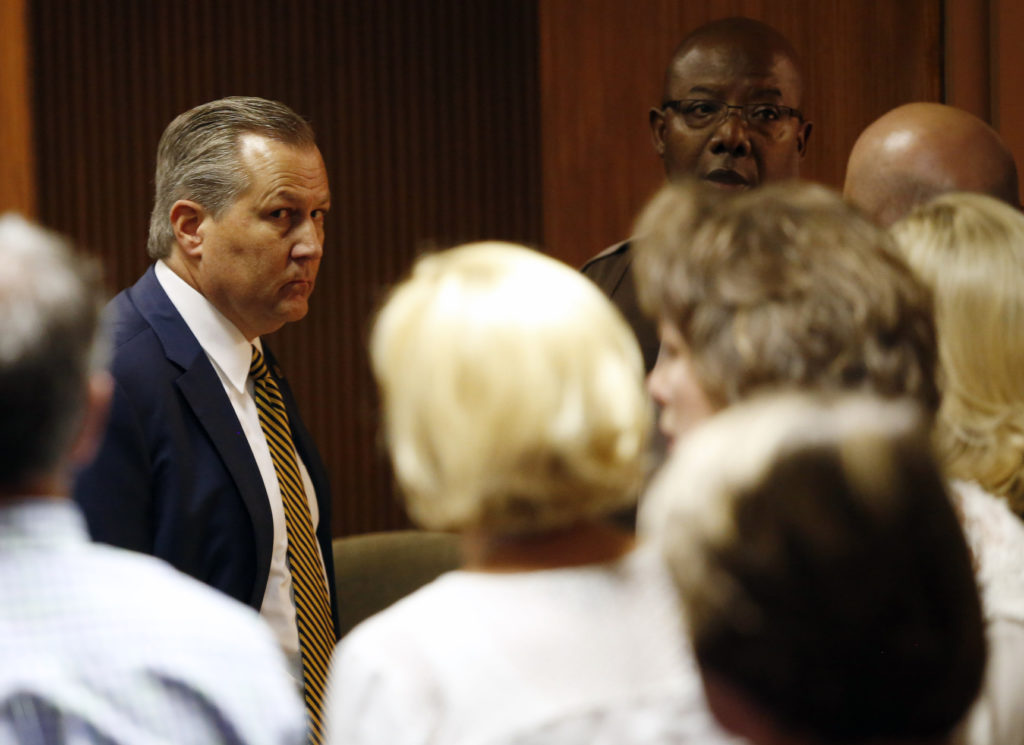
Former Alabama House Speaker Mike Hubbard has asked for a new trial, saying, among other claims, the state allowed improper expert testimony regarding Alabama ethics law, in their efforts to secure convictions against him. Hubbard’s attorney Bill Baxley claims former Alabama Ethics Commission Executive Director Jim Sumner was improperly allowed to testify about the intent of the state’s ethics law. Hubbard’s attorneys filed the request Friday asking a judge to reverse Hubbard’s conviction, or allow a new trial, contending Hubbard did not receive a fair and impartial trial. On June 10, Hubbard was convicted on 12 of 23 counts of corruption, which automatically removed the powerful Republican from both the Legislature and the speaker’s office, ending the upward trajectory of the one-time GOP star whose career previously appeared to have no limits. On July 8, he was sentenced to a total of four years in prison, eight years on probation and ordered to pay a $210,000 fine. Hubbard is currently out on bond.
Trussville Mayor Gene Melton surrounded by multiple ethics questions, rebukes opportunity to address them
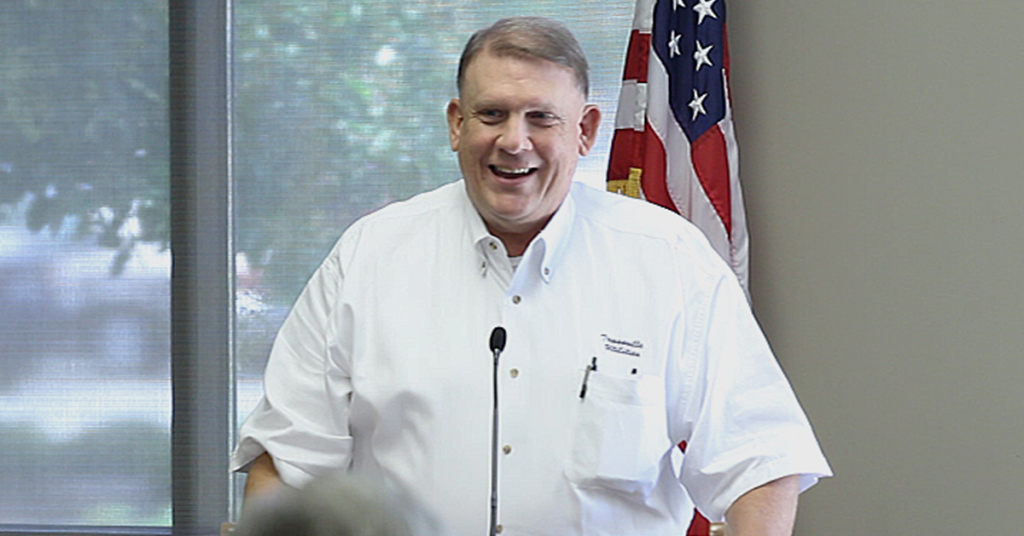
Trussville Mayor Gene Melton has been elected five times, beginning in 1996. While some that this is too long and that the city needs to move forward, Melton believes he deserves yet another term. This year, Melton has drawn two opponents, current City Council President Anthony Montalto and fellow City Council member Buddy Choat. In an unusual move, local residents have also started the “Take Back Trussville” movement, which endorses neither of Melton’s opponents but makes clear their goal is to move the city beyond another Melton mayorship. The founder of the movement, Butch Cole, spoke to Alabama Today after its launch and made clear the fact the group, and himself, wanted a new mayor, saying, “20 years is too long for anyone to be in office.” Last week, Alabama Today spoke to Melton about the race and his opponents, and pointed out a number of errors on his Statement of Economic Interests made from 2011 forward. Speaking about his campaign, Melton emphasized that he was born and raised in the area and that a lot of people in Trussville not only know him, but also know about his history in law enforcement. He stressed the strides in improving education, infrastructure and even the certification of local first responders that have occurred on his watch as ways he has been successful. As for his opponents, Mayor Melton said: “I take the high road, I’m not going to go out there and bash them. I’m running on my record and experience.” Today however, one can only hope he’s taking a break from campaigning and his mayoral duties to address errors on his ethics reports posed by Alabama Today last week. During our interview we had the opportunity to ask Melton about a number of inconsistencies, missing data and wrong information reported in his ethics reports throughout the last five years. Melton has several discrepancies on income and assets on multiple reports filed over a five-year period. Reports Melton noted he personally filled out and filed. The reports in question are his “Statement of Economic Interests,” legally mandated by the Alabama Ethics Commission. The commission’s website cites the appropriate state statutes that cover false and incorrect filings on these statements saying: (e) A person who intentionally violates any financial disclosure filing requirement of this chapter shall be subject to administrative fines imposed by the commission, or shall, upon conviction, be guilty of a Class A misdemeanor, or both. Any person who unintentionally neglects to include any information relating to the financial disclosure filing requirements of this chapter shall have 90 days to file an amended statement of economic interests without penalty. According to his Statement of Economic Interest, Melton claimed he made less than $1,000 as mayor in 2013, a job that pays $60,000 per year and will increase to $75,600 next term. When asked about it, he said, “That had to be a typo or error on my part. I didn’t take a cut in pay and I don’t recall not cashing my checks.” He also noted that, “During all this time, I draw state retirement.” Melton also owns a property at the Country Club Estates, which features properties on Logan Martin Lake in Talladega. On the Talladega property, which appears to make appearances on and off the reports, Melton says, “It’s been there the whole time.” He went on to clarify, “If it’s off, I just failed to disclose it.” The property doesn’t appear on the 2011 or the 2015 reports. Melton admitted it “should be on both of those.” In response to the low price he reportedly paid for the property, he explained, “I got it from my brother-in-law in 1972.” After our interview early last week Melton said, “Now that I’ve been made aware, I’ll go back and make the proper corrections.” Alabama Today reached out to the Alabama Ethics Commission just before their office closed on Friday and was told that they have yet to receive any amended reports. Melton is up for re-election in the upcoming Aug. 23 municipal elections.
Jim Zeigler says Robert Bentley impeachment proceedings ‘too slow’
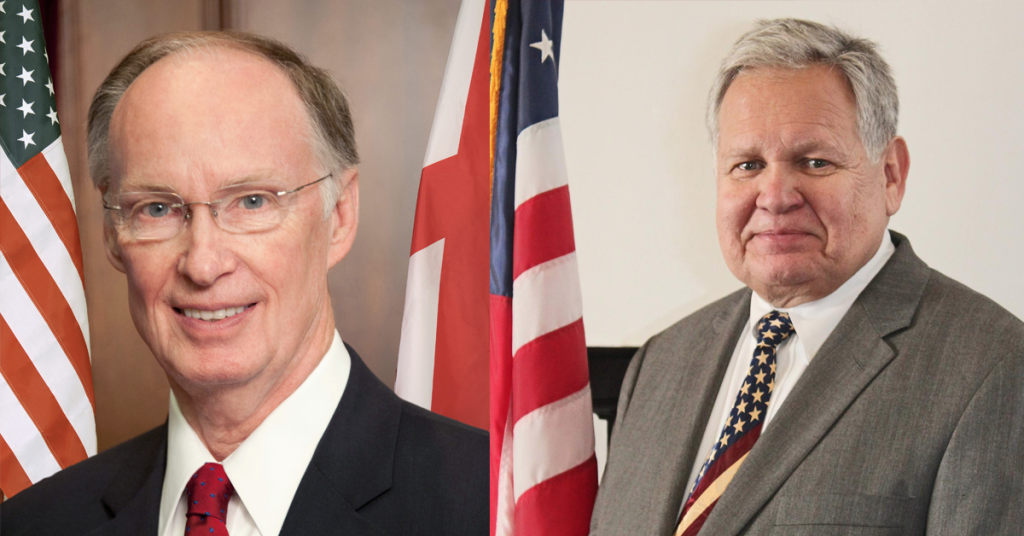
State Auditor jim Zeigler is champing at the bit to impeach embattled Gov. Robert Bentley. A legislative panel will convene on June 15 to begin an investigation into allegations Bentley misused his office and made “inappropriate” advances toward a former advisor. But Zeigler said Wednesday he is “disappointed” the proceedings are taking so long. The House Judiciary Committee will get the ball rolling in terms of formal impeachment this month, but Zeigler said that avenue ignores other methods of investigating and punishing the governor for high crimes and misdemeanors. “The citizens of Alabama are weary of the Bentley problems,” said Zeigler. “They want the air cleared on the Bentley administration soon. It appears that an impeachment investigation would not report its results to the full House until February, 2017 when the regular session starts.” “The people of Alabama do not want to wait until 2017 to clear the clouds over the governor’s office. They want something done now, or at least in the next few months. I agree,” Zeigler said. “It is unfair to the taxpayers for their state government to have to operate under a cloud.” Zeigler has filed a separate complaint against Bentley via the state ethics commission. He attempted to subpoena Bentley amid those proceedings, claiming he had the statutory authority to force the governor to appear before a public meeting in his office. Bentley claimed his office did not have the proper authority, and did not appear at a scheduled meeting. Presumably Zeigler still wants to see the impeachment effort to proceed by that avenue, though he said state law prevents him from discussing the matter.
Mike Hubbard trial day 7: Hubbard’s business associates, friends take the stand
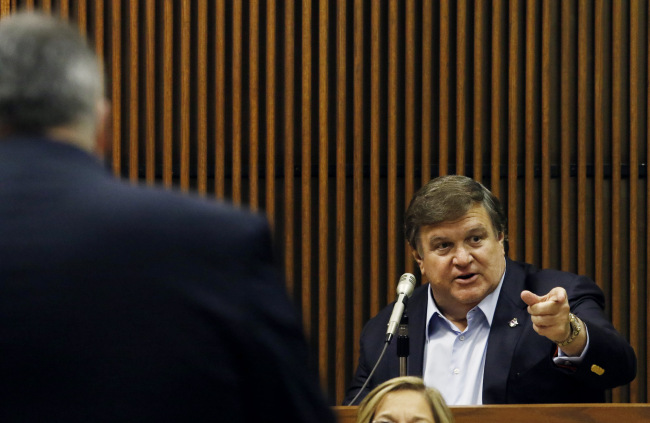
Prosecutors continued to call witnesses Thursday in an effort to prove that Alabama House Speaker Mike Hubbard used his political office for personal profit. Thursday, the jury heard from three witnesses, all of whom were Hubbard’s business associates. Some of whom testified they considered Hubbard a personal friend. Testimony began with Robert Abrams, the former president and owner of Capital Cups, one of Hubbard’s clients. Hubbard held a $10,000 a month contract with Capital Cups, and four of the 23 charges against him are based on his work with the company. Going in to business with Hubbard, Abrams said he asked the speaker if he would be able to work for the business since he served as speaker. According to Abrams testimony, Hubbard then presented him with a letter from the Alabama Ethics Commission giving him permission to work with third-party companies. Abrams went on to testify that Hubbard arranged meetings for him with Governor Robert Bentley and Secretary Greg Canfield. During the cross examination, Abrams explained he hired Hubbard because of his sports network connections, having formerly worked in sports broadcasting and for the Auburn Network, and that it had nothing to do with his political office. “Legislature had nothing to do with it,” Abrams said. “We were calling him based on his connection for sports network.” “We went to him because of the sports network connection is where I thought he might be helpful,” Abrams continued. Rob Burton, president of Hoar construction, also took the witness stand Thursday morning. Burton was one of 10 people who invested $150,000 into Hubbard’s printing company Craftmaster when it was facing financial trouble. “I invested in that because Mike Hubbard was a friend and it had nothing to do with the fact that he was speaker of the House. Even if he were not speaker, I still would have invested because I knew Mike as a friend, I like him and I trusted him,” Burton said before the jury. Last on the stand in day seven of the trial was Jimmy Rane, president of Great Southern Wood. Like Burton, Rane also invested $150,000 into Craftmaster. “I would trust him with my children and my check book,” Rane testified of Hubbard. Rane stressed his friendship with Hubbard throughout his testimony, and explained he has known Hubbard since 1984. “I would trust him with my children and my checkbook,” said Rane. Rane said he would have made the deal even if Hubbard was not speaker because “it’s a good investment.” Court recessed around noon central. Testimony will resume Friday. Hubbard was indicted in October 2013 on 23 felony ethics charges of using his political office for personal gain. If convicted, he faces a maximum penalty of two to 20 years imprisonment and fines of up to $30,000 for each count. He would be removed from office if convicted of any of the 23 charges. Hubbard has since maintained his innocence and continued to serve as Speaker of the Alabama House during the 2016 legislative session.
Testimony: Mike Hubbard hired to open doors for others

The president of an education curriculum company testified Tuesday that he hired Alabama House Speaker Mike Hubbard in a $7,500 a month consulting contract, to open doors with legislative leaders in other states as the company tried to sell digital courses to school systems. Edgenuity President Michael Humphrey said he believed Hubbard – with his legislative and sports background – could get him meetings with legislative leaders that Humphrey said it would take him a year to get on his own. “My idea was to use Mike to say, ‘Get me a meeting with this guy, let me go meet him,’” Humphrey said. Humphrey said Hubbard’s contract specified that he only worked on matters outside Alabama for the company. Humphrey said Hubbard’s work for the company included calling the then-speaker of the South Carolina House of Representatives and emailing Auburn University Athletics Director Jay Jacobs asking for contacts for the company as it tried to get cleared by the NCAA to sell its products for college athletes. Hubbard faces 23 felony ethics charges accusing him of using his political positions to make money and solicit work, investments and clients from people with business before the Alabama Legislature. Prosecutors say Hubbard improperly used the “mantle of his office” to benefit his businesses and clients. Hubbard has maintained that the transactions were legal and permitted under the exceptions that the state ethics law provides for normal business dealings and longstanding friendships. During the questioning of the retired director of the Alabama Ethics Commission, prosecutors and defense lawyers took turns alternately depicting Hubbard as someone who cautiously sought advice about what was allowed under state ethics laws or someone who willfully ignored the advice he was given. Jim Sumner said Hubbard often sought informal ethics advice from him or general counsel Hugh Evans and they repeatedly cautioned him about the restrictions of the law. They gave him an informal letter about his work for a municipal-owned gas utility saying the work would be legal as long as he didn’t use the “mantle of his office” to benefit his clients and businesses. “We always got to the point: I would say, or Hugh would say, ‘You remember the drill. You can’t use your position to benefit yourself, your business or your family,’” Sumner said. Sumner served as an expert witness, providing testimony on both the informal advice given to Hubbard and providing general interpretations about what the law allows and doesn’t allow. Sumner said he once called Hubbard with concerns after hearing rumors that a change to the 2013 budget bill could be a major boon for one of Hubbard’s clients. Hubbard first asked if those rumors were coming from “enemies” and then added that the matter would be taken care of in conference committee. What exactly constitutes using the “mantle” of a public office could be a pivotal point in some of the charges in the public corruption trial. Sumner, under questioning from prosecutors, said it was an intangible that included using the aura of a public office to benefit private business clients. Prosecutors introduced an email from Hubbard in which he described that as boilerplate ethics language and that he was free to introduce himself as speaker of the Alabama House of Representatives. Under cross-examination by defense lawyer Bill Baxley, Sumner acknowledged Hubbard sought more advice about his business dealings than any other legislator. “He said, ‘I want to know where the line is?’” Baxley asked. “Correct,” Sumner replied. “To your knowledge, Alabama has a part-time citizen legislature and almost every member has to make a living,” Baxley added. Hubbard’s defense has made a point of saying that he sought ethical guidance and followed the law. But informal opinions don’t provide the legal protection Hubbard might have received had he sought formal opinions from the five-member Ethics Commission. The charges against Hubbard were brought by a grand jury convened by the Alabama attorney general’s office. Baxley tried to point out that the Alabama Ethics Commission, a panel that reviews allegations of ethics violations, never brought any findings against Hubbard. However, Sumner said that he did not know about several of the speaker’s contracts until after Hubbard was indicted by the grand jury. “More than half of the things that are before this case were never known to the Ethics Commission,” Sumner said. The trial continues Wednesday with a number of high-profile witnesses. Alabama Gov. Robert Bentley could be called to testify as soon as Wednesday. Republished with the permission of The Associated Press.
Mike Hubbard trial day 5: Hubbard didn’t seek approval before making deals, former ethics chief testifies
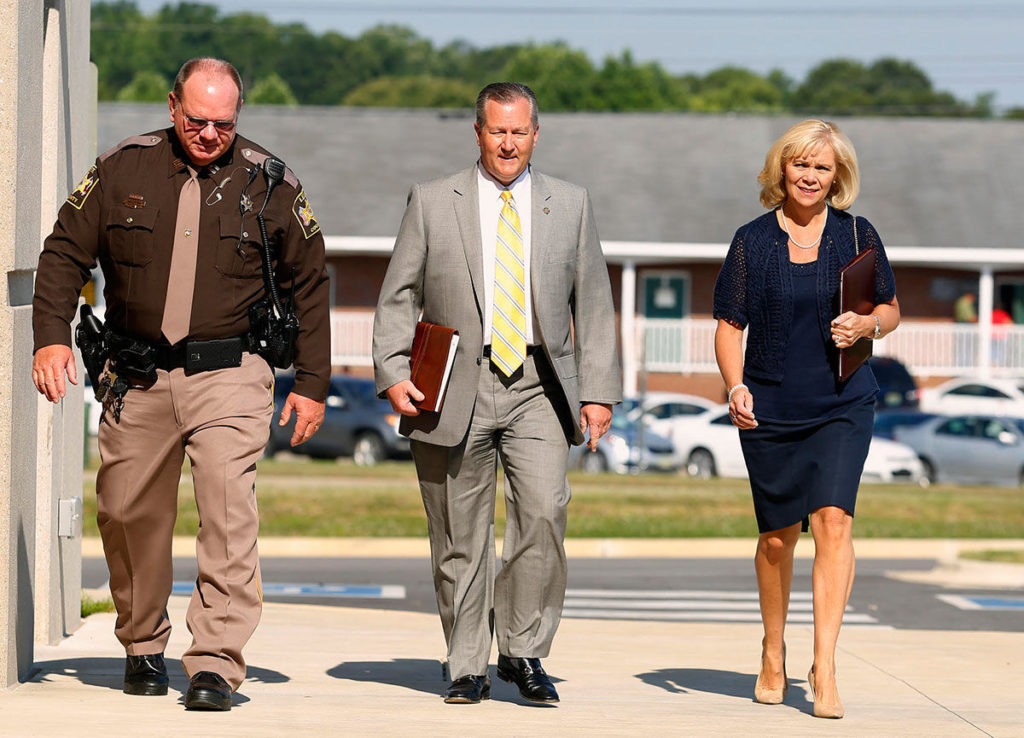
In the long-awaited trial of indicted Alabama House Speaker Mike Hubbard, more than 20 witnesses were called during the first four days of trial last week. Fellow legislators, business partners, politicians and state executives testified about their knowledge of Hubbard’s actions, providing testimony for many of the 23 charges Hubbard faces. The state endeavors to prove Hubbard used his office for personal gain and used his position as Speaker of the House, and formerly as chair of the Alabama Republican Party, to solicit jobs and investments in businesses with which he was involved. A conviction on any one of the charges would remove the speaker from office. The charges carry potential sentences of two to 20 years and fines of up to $30,000 for each count. The trial resumed Tuesday after the long Memorial Day weekend as prosecutors called Jon Sanderson, a financial officer for investment firm Sterne Agee from 2012 until March 2016. Sanderson testified to writing a check in November 2012 to Hubbard’s company Craftmaster on behalf of the Sterne Agee Group for $150,000, explaining he was instructed by CEO Jim Holbrook to write the check during a meeting. “During the meeting, Mr. Holbrook slid a piece of paper over to me that had Craftmaster Inc. written on it and he whispered to me that he needed a check written for $150,000 right then,” Sanderson explained. Sanderson said the incident was “not totally out of the ordinary.” Later in the morning, former Ethics Commission Director Jim Sumner was an expert witness on the ethics law. Sumner testified that Hubbard did not notify or seek advice from the Alabama Ethics Commission regarding consulting contracts he held with the American Pharmacy Cooperative Inc., Edgenuity and Capitol Cups. “I did not know about those companies until I saw the indictment,” Sumner said of Hubbard’s contracts with Edgenuity and Capitol Cups. Next, executive vice president of the online learning company, Edgenuity, Michael Humphrey, testified part of the reason his company hired Hubbard as a consultant was due to his position as a lawmaker. “I would say part of the reason was that he’s a legislator,” said Humphrey. “He was a legislator with the ability to work outside Alabama. I wanted to take advantage of his relationships.” Humphrey clarified the company never intended to use Hubbard’s consulting services within the state of Alabama. The trial continues Wednesday. Witnesses expected on Wednesday: Billy Canary: Business Council of Alabama president and CEO Dax Swatek: lobbyist Bob Riley: former governor of Alabama Minda Riley Campbell: daughter of former Gov. Bob Riley Robert Bentley: Governor of Alabama Greg Canfield: Department of Commerce secretary


